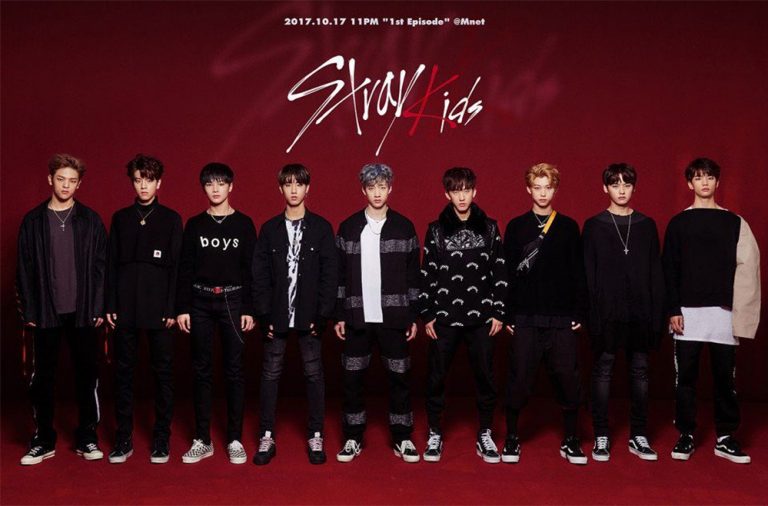 Survival shows appear to be the trend on Korean television in the past few years and, after the huge success of Produce 101 season two, understandably there has been a dramatic increase of survival shows being aired. Not only are these shows useful for agencies to present their trainees and build a potential fanbase, but lately they also seem to be a tool to revamp the ‘faded’ careers of some already debuted idols.
Survival shows appear to be the trend on Korean television in the past few years and, after the huge success of Produce 101 season two, understandably there has been a dramatic increase of survival shows being aired. Not only are these shows useful for agencies to present their trainees and build a potential fanbase, but lately they also seem to be a tool to revamp the ‘faded’ careers of some already debuted idols.
As summer ends, new shows begin and in fall 2017 three new survival shows will be aired: JYP Entertainment’s Stray Kids (preparatory for the incoming debut of its new boy group), YG Entertainment’s MIX9 (featuring idols and trainees from several agencies), and the much talked about KBS show The Unit.
Despite their recent crazy popularity, survival shows are not uncommon to Korean television: not only newer groups of the likes of Winner and Twice got to debut thanks to a survival show, but even seniors such as Big Bang and 2PM had to go through one. Broadcasting stations have been testing many formats of survival shows through the years. Lately it is very popular to gather a great number of trainees from several agencies and create a temporary idol group for them to promote, but traditionally survival shows had no more than twenty contestants from the same agency.
Among the new shows airing this fall, the only one that will involve a single agency is JYP Entertainment’s Stray Kids. Stray Kids will premiere on October 17th on Mnet. In this show the debut member number should be already set, and the contestants will go through missions with their debut at stake. While there are differences, this show is most reminiscent of WIN: Who’s Next, the show that saw the birth of Winner. Winner had already a determined line-up even as Team A and, despite what YG actually promised, the losing Team B did not disband: they debuted as iKon adding just one more member following another survival show, Mix & Match.
To build up expectations and hype, JYP Entertainment has released a music video and some teaser photos to give the audience a taste of what the nine boys look like, the music genre they might pursue in the future, and their skills. Survival shows might be a good way to advertise trainees or groups that are just about to debut, but it’s hard not to think about what will happen once the frenzy about the survival show they’re taking part to will tone down: chances of them going back to being unknown do exist.

The truth is that a group needs good songs and an interesting concept to keep the public’s interest alive. Boys 24, for example, had a promising concept and potential to draw in a large audience, due to how passionate young female fans can get when it comes to support their idols. Despite the interesting premises, the Black Unit failed to live up to the expectations, with possible reasons being controversies surrounding some members, the confusing and complicated concept of the show and, finally, the songs Boys 24 were given. The first Boys 24 release, Rising Star, wasn’t a bad song per se, but it also wasn’t anything new. It was easy to see that CJ E&M (the corporation behind the show’s production) invested in the making of the song and the music video, but in a market where over 50 new groups debut each year, being merely good is not enough.
YG Entertainment will have its own survival show as well, but, oddly, only trainees from agencies other than YG Entertainment will join. No one knows much about MIX9, except that it will be aired on JTBC and it has been labeled as “YG’s version of Produce 101“. Unlike the latter, there will be 400 contestants both trainees and idols. MIX9 will be produced by Han Dong-chul, same PD of Show me the Money and Unpretty Rapstar, and the identity of some of the contestants has been shown through a video published on YouTube.

It’s hard to make any kind of predictions about MIX9, but, given how Han Dong-chul’s works are usually structured, it’s safe to expect a lot of malicious editing of the contestants and a constant encouragement of rivalries and quarrels.
Other than sometimes uncalled for drama, what keeps the audience entertained is to witness the growth of one’s favourite contestant through ups and downs, growing inevitably fond of them. Unfortunately, it is extremely easy for the shows’ production to somehow manipulate the viewer’s tastes, giving some contestants a lot more screen time than others, subsequently guaranteeing them higher chances to attract fans and keep advancing on the show. This is exactly what happened to Kim Sohye the first season of Produce 101: despite her struggles to catch up with the other girls in signing and dance practice, her hardships and efforts were constantly monitored by Mnet and she eventually landed a spot in IOI.
The Unit is a show whose aim is to reboot idols’ careers, and it is safe to say that it’s a concept no one has tried before. Only 18 idols (9 males and 9 females) will make it until the end and will promote, in two separate units, for 7 months. So far more than 200 idols have auditioned for the show, but only 63 males and 63 females made it through the first cut. Some of the contestants’ names are already known to the public like: Boyfriend‘s Donghyun, Jeongmin, Kwangmin and Minwoo, MyName‘s Chaejin, Gunwoo, Seyong and JunQ, Bigstar, former SM Rookies Hansol, Dal Shabet‘s Serri, SPICA‘s Jiwon, DIA‘s Yebin and former T-ara Ahreum. The Unit will premiere on October 28th, it has been announced that Rain will be the MC, and among the mentors there will be top idols of the likes of Hyuna and Taemin.
When it comes to these shows, the risk is that contestants (especially those who won’t make it to the end) will become nothing more than a disposable good in the hands of agencies and broadcasting stations. Let’s take the girls of Sixteen who failed to make it into Twice: despite the show being a huge success back when it aired, after its end only Somi managed to debut or at least make a name for herself. Natty, Eunseo and Jiwon eventually joined Idol School after leaving JYP Entertainment, but none of them made it to the final group.

Survival shows can be especially degrading when idols who have already debuted with lacklustre results have to start all over again without any guarantee of success. So far the only real attempt at giving new life to an idol groups’ career has been Nu’est. Nu’est lucked out with Produce 101, but so far their case sounds more like an extraordinary event. It is not possible to predict the future, but there is no guarantee that another group — or single member — will have their same fortune.
In Korea, trends tend to be ridden until the public gets extremely sick of them: right now survival shows are very popular and broadcasting stations are rightfully riding this popularity wave giving the audience what’s in demand. The problem with these shows that have Korean audiences addicted, lies in the fact that they are not really necessary, because right now idol market is extremely oversaturated and there is no need to have so many new groups debut. While it’s true that it’s a shame to have talented hidden gems left on the back burner because of the public’s demand for new fresh faces, shows like The Unit wouldn’t be the only way for already debuted idols to try and shoot to fame if agencies managed their groups better before giving up on them debuting new ones.
Exposing a great number of trainees and idols to the public through ruthless survival shows eventually does nothing but deceive young boys and girls who dream of becoming stars. These shows end up being beneficial to the broadcasting stations and no more than 5% of the contestants and agencies taking part to them, but the struggle to hit big in an oversaturated market is such that going through these Russian roulette kind of shows is still better than being unknown.
 Another factor that must be taken into account is that the general public not interested in idols will probably become sick of seeing them everywhere on public and cable television, feeling like there is no escape from idols because of the very little variety in shows’ schedules. With both television and music being oversaturated by idols, one wonders why survival shows are still in such high demand.
Another factor that must be taken into account is that the general public not interested in idols will probably become sick of seeing them everywhere on public and cable television, feeling like there is no escape from idols because of the very little variety in shows’ schedules. With both television and music being oversaturated by idols, one wonders why survival shows are still in such high demand.
The reason why Korea can not seem to get enough of survival shows is that the public is very sensitive to trends and demands what’s popular in large quantities in a short time frame until it becomes dull and it is time to move on to something else. Agencies and broadcasting stations on the other hand are using survival shows as a shortcut to quench the public’s thirst for something new. If agencies took better care of their already debuted groups, focusing on quality rather than quantity, giving them better songs and more interesting concepts, this cycle would break and it wouldn’t be necessary to constantly debut new groups and try to reboot old ones.
(Naver [1][2][3][4][5], Nate, News1, Sports Donga. Images via KTBC, KBS, Mnet.)



